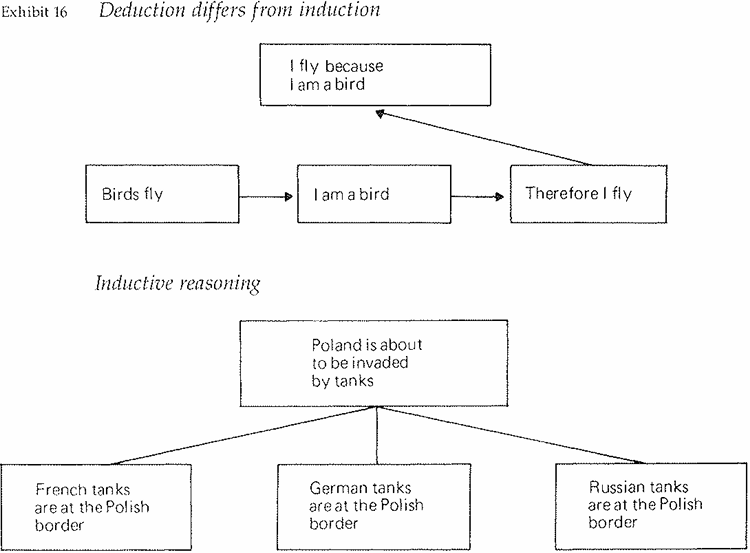


 Grammar
Grammar
 Tenses
Tenses
 Present
Present
 Past
Past
 Future
Future
 Parts Of Speech
Parts Of Speech
 Nouns
Nouns
 Verbs
Verbs
 Adverbs
Adverbs
 Adjectives
Adjectives
 Pronouns
Pronouns
 Pre Position
Pre Position
 Preposition by function
Preposition by function 
 Preposition by construction
Preposition by construction
 Conjunctions
Conjunctions
 Interjections
Interjections
 Grammar Rules
Grammar Rules
 Linguistics
Linguistics
 Semantics
Semantics
 Pragmatics
Pragmatics
 Reading Comprehension
Reading Comprehension|
Read More
Date: 2024-09-19
Date: 2024-09-13
Date: 2024-10-01
|
As we have demonstrated, clear writing results from a clear exposition of the exact relationships between a group of ideas on the same subject. Properly organized, these ideas will always form a pyramid, with the various levels of abstraction established and related under a single thought.
Ideas in the pyramid relate in three ways-up, down, and sideways. An idea above a grouping summarizes the ideas below, while these ideas in turn explain or defend the point above. At the same time, the ideas in the grouping march sideways in logical order. What constitutes logical order differs depending on whether the pyramided group was formed deductively or inductively.
These two forms of reasoning are the only patterns available for establishing logical relationships between ideas. Consequently, an understanding of how they differ and what their rules are is essential to being able to sort out your thinking and express it clearly in writing.
Briefly, the difference is as shown in Exhibit 16. Deduction presents a line of reasoning that leads to a "therefore" conclusion, and the point above is a summary of that line of reasoning, resting heavily on the final point. Induction defines a group of facts or ideas to be the same kind of thing, and then makes a statement (or inference) about that sameness. The deductive points derive from each other; the inductive points do not.
These differences are really quite enormous, as the next two sections will demonstrate. But once you have digested them, you should have little difficulty in recognizing or sorting out either form of reasoning, or in choosing the one that appropriately permits you to say clearly what you mean.

|
|
|
|
دراسة يابانية لتقليل مخاطر أمراض المواليد منخفضي الوزن
|
|
|
|
|
|
|
اكتشاف أكبر مرجان في العالم قبالة سواحل جزر سليمان
|
|
|
|
|
|
|
اتحاد كليات الطب الملكية البريطانية يشيد بالمستوى العلمي لطلبة جامعة العميد وبيئتها التعليمية
|
|
|